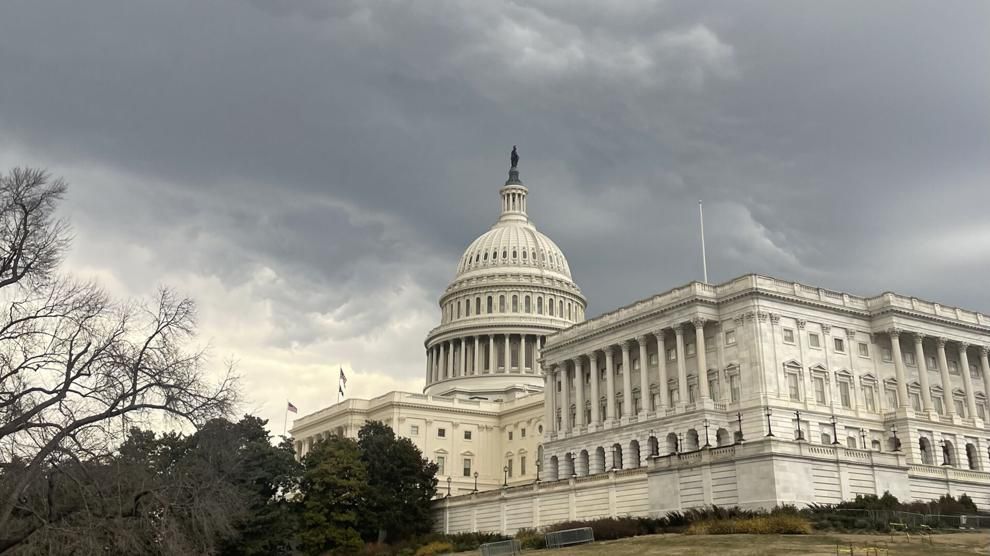The Schumer Shutdown: Democrats Vote to Shutdown Government
Democrats tried to blackmail Republicans into adding $1.5 Trillion to the clean spending bill, $500 million of which would go to health care for illegal aliens.

The U.S. government entered a partial shutdown at midnight Tuesday after Senate Democrats blocked a Republican-proposed clean continuing resolution (CR) to extend federal funding through mid-November, demanding instead $1.5 trillion in additional spending for priorities including expanded healthcare subsidies and social programs. The 53-47 vote failure marked the second rejection of the GOP measure in 24 hours, following a similar House procedural defeat Monday where Democrats conditioned support on the extraneous appropriations, effectively halting bipartisan negotiations and forcing non-essential operations to cease.
House Speaker Mike Johnson (R-La.) advanced the clean CR on September 29, securing 217-215 passage with unanimous Republican support and no Democratic votes, but it stalled in the Senate where Majority Leader Chuck Schumer (D-N.Y.) refused consideration without the $1.5 trillion add-ons, described by GOP leaders as unrelated "liberal wish-list items" like $500 billion for undocumented immigrant healthcare. Senate Republicans, holding 53 seats, needed seven Democratic defections for the 60-vote threshold; three Democrats crossed party lines to vote yes—Sens. John Fetterman (Pa.), Catherine Cortez Masto (Nev.), and independent Angus King (Maine)—but the measure fell short amid unified Democratic opposition.
The impasse traces to September 25, when the House passed the initial CR by 220-207, again without Democratic backing, prompting Schumer's counterproposal laden with the $1.5 trillion demands. Republicans, including Senate Minority Leader Mitch McConnell (Ky.), accused Democrats of manufacturing the crisis to force spending unrelated to baseline operations, echoing tactics from the 2018-2019 shutdown when similar demands prolonged closure for 35 days.
As of Wednesday morning, approximately 800,000 federal civilian employees—about 40% of the workforce—faced furloughs, with active-duty military exempt but support staff delayed. Non-essential services halted immediately: National parks closed to visitors, passport processing suspended, and IRS refund issuance paused, potentially delaying $10 billion in payments. By Day 3 (October 4), Smithsonian museums and zoos shuttered, Small Business Administration loans froze, and FDA food inspections slowed, risking supply chain disruptions. Week 1 (October 8) brings military family support delays and contractor payments halted, costing the economy an estimated $1 billion daily per CBO projections. By Day 21 (October 22), Social Security checks could lag for new beneficiaries, and unemployment benefits processing halts in some states.
Historical precedents suggest resolution within 21 days—average since 1976—but current dynamics lower odds below 50% before mid-October impacts, per Bloomberg Government analysis. Bipartisan talks resumed Tuesday evening, with Johnson and Schumer scheduling a closed-door session, but Democratic insistence on the $1.5 trillion package—framed as "essential equity investments"—clashes with GOP fiscal hawks like Sen. Rand Paul (Ky.), who voted against the clean CR over baseline spending levels. A slim majority of Republicans, including Sens. Susan Collins (Maine) and Lisa Murkowski (Alaska), urged compromise, but without seven Democratic votes, shutdown persistence risks compounding economic drags estimated at $18 billion over three weeks. President Trump, who inherited the fiscal year-end deadline, directed Treasury Secretary Scott Bessent to prioritize essential payments, stating the impasse "highlights Washington's broken priorities" in a September 30 statement.
Like this article